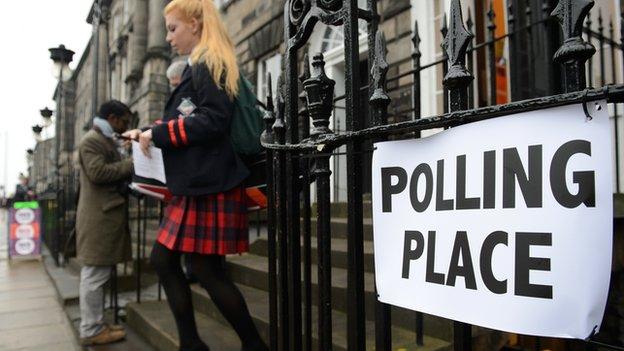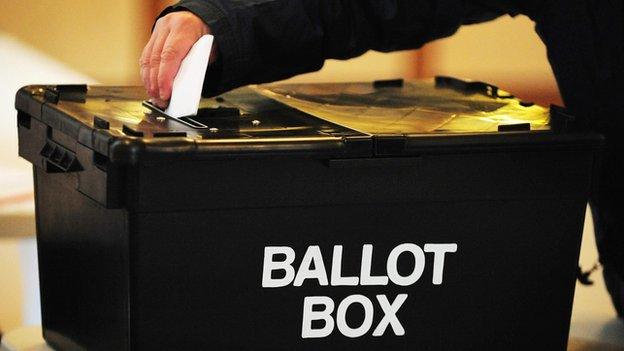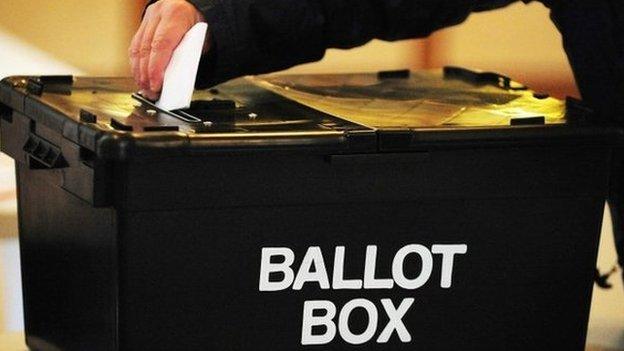Force young people to vote in elections, think tank says
- Published

The report comes after the voting age for the Scottish independence referendum was lowered to 16
Young people should be forced to vote in the first election after they turn 18, a centre-left think tank has said.
Making them vote may halt declining election turnouts and could "kick start the habit of a lifetime", the Institute for Public Policy Research (IPPR) said.
In 2010, 44% of 18 to 24-year-olds voted, with the "younger and poorer" least likely to vote, it suggested.
The UK risks "sleepwalking into a more divided democracy" unless there is reform, the IPPR's Mat Lawrence said.
"The working class and the young have less input into political decision-making processes, with lower rates of participation and representation than older and more affluent citizens," the IPPR report suggested, external.
Such inequalities undermined the "legitimacy and effectiveness" of democracy, the report claimed, saying it was unlikely the trend would be reversed in next month's general election.
'Political inequality'
At the 1970 general election, the gap between the proportion of 18-24 year olds and over-65s who voted was 18%.
However, at the 2010 general election, the gap had risen to 32% - with 76% of over-65s voting, compared to 44% of 18-24 year olds.
"Long-run decline in voter turnout in the UK is being driven by the relative collapse in participation among the young and the less well-off - not by a uniform decline in turnout among all groups," Mr Lawrence added.
"A distinctive non-voting population, generally younger and poorer, heightens political inequality by giving some groups far greater influence at the ballot box."
The report comes after the voting age was reduced to 16 for the Scottish independence referendum, in September - when 109,593 16 and 17-year-olds registered to vote, external.
Mr Lawrence said the high turnout at the referendum, as well as the rise of grassroots groups, provided reasons for optimism.

There would need be a "none of the above" option on ballot papers, broadcaster Rick Edwards said
Broadcaster and author Rick Edwards told BBC Radio 4's Today programme that he supported the proposal, saying "something drastic needs to happen" to encourage young people to vote.
But he said there would have to be a "none of the above" option on ballot papers, to allow voters to express their dissatisfaction.
"The problem is politicians are more interested in serving the interests of the demographic who vote more because they are interested in winning their votes and keeping their votes.
"Therefore what is happening is that young people are getting marginalised and their interests aren't being served as they should be," he added.
He said that if young people felt they were not being spoken to, or were not being paid any attention by politicians, they would be even less likely to vote.
- Published29 December 2014
